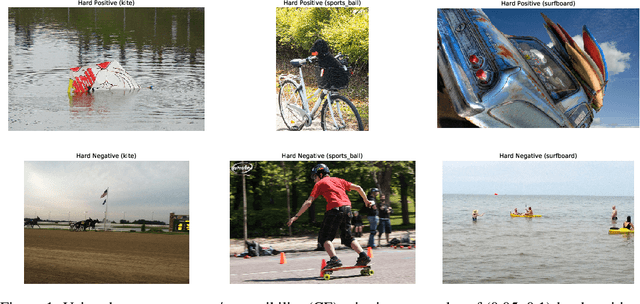Identifying and Benchmarking Natural Out-of-Context Prediction Problems
Paper and Code
Oct 25, 2021



Deep learning systems frequently fail at out-of-context (OOC) prediction, the problem of making reliable predictions on uncommon or unusual inputs or subgroups of the training distribution. To this end, a number of benchmarks for measuring OOC performance have recently been introduced. In this work, we introduce a framework unifying the literature on OOC performance measurement, and demonstrate how rich auxiliary information can be leveraged to identify candidate sets of OOC examples in existing datasets. We present NOOCh: a suite of naturally-occurring "challenge sets", and show how varying notions of context can be used to probe specific OOC failure modes. Experimentally, we explore the tradeoffs between various learning approaches on these challenge sets and demonstrate how the choices made in designing OOC benchmarks can yield varying conclusions.
 Add to Chrome
Add to Chrome Add to Firefox
Add to Firefox Add to Edge
Add to Edge